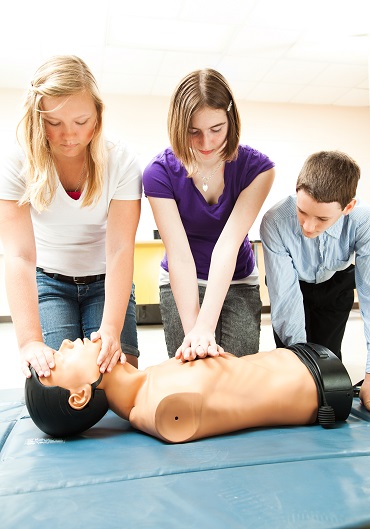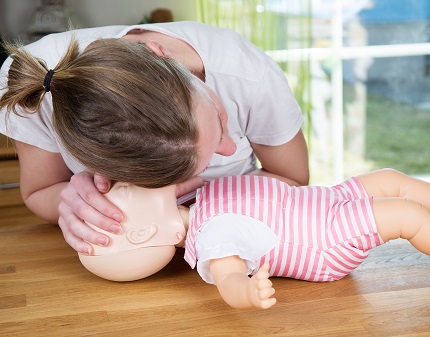 We’ve already discussed in great detail that it’s perfectly acceptable to administer CPR on a pregnant woman; however, what if the roles are reversed and a pregnant woman needs to give CPR to a victim?
We’ve already discussed in great detail that it’s perfectly acceptable to administer CPR on a pregnant woman; however, what if the roles are reversed and a pregnant woman needs to give CPR to a victim?
When it comes to pregnancy and CPR, many people have questions and there is quite a bit of conflicting information floating around on the internet. At the Response Institute, we adhere strictly to guidelines, advice, and practices recommended by the American Heart Association (AHA).
Every Pregnancy Is Different, So It Depends on What Your Doctor Says
Some pregnant women are told to limit activity and may even be place on bed rest for extended periods of time during their pregnancy. Other pregnant women are encouraged by their doctor to participate in a full range of activities. Your ability to perform CPR depends on what your doctor has told you about your specific situation.
If a doctor has told you that you can be active during your pregnancy, you are safe to perform CPR.
 How far along you are in the pregnancy can also come into consideration, though many doctors encourage exercise throughout a pregnancy, as long as no warning signs appear. If you’re not sure what kinds of warning signs to be on the lookout for, keep it’s best to discuss these warning signs with your doctor.
How far along you are in the pregnancy can also come into consideration, though many doctors encourage exercise throughout a pregnancy, as long as no warning signs appear. If you’re not sure what kinds of warning signs to be on the lookout for, keep it’s best to discuss these warning signs with your doctor.
So It’s Safe for an Expectant Mother to Perform Chest Compressions?
Unless a doctor has specifically forbid physical activity, it should be perfectly safe for a pregnant mother to administer CPR and chest compressions. People get concerned about the baby getting shaken around by all the up and down movements, but the reality of the matter is that these movements are minor, and the baby is well protected in the womb.
When Would a Pregnant Woman Have to Give CPR?
Maybe a pregnant woman is the only adult around at the site of the emergency, or the only one that has been trained in CPR. It’s not uncommon for a nurses to work while pregnant, and at any moment they might be responsible for administering CPR.
Many hospitals and CPR training facilities offer CPR classes specifically for pregnant women, so that should be a good indicator as to how common it is for a woman to perform CPR.
 Should My Family Learn CPR?
Should My Family Learn CPR?
Adding a new member to the family is a great excuse to bring the entire family in for CPR training classes. There are different techniques for administering CPR to infants, children, and adults, so it’s important to be trained to handle any emergency scenario you might encounter.
Contact the Response Institute to learn more about available CPR classes or to schedule a CPR training course for members in your family.
Click Here to Learn More
